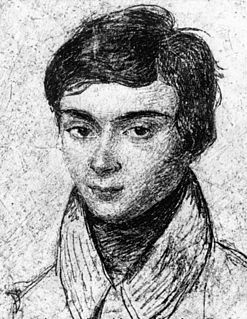A Quote by Evariste Galois
An author never does more damage to his readers than when he hides a difficulty.
Related Quotes
The narrative image has more dimensions than the painted image - literature is more complex than painting. Initially, this complexity represents a disadvantage, because the reader has to concentrate much more than when they're looking at a canvas. It gives the author, on the other hand, the opportunity to feel like a creator: they can offer their readers a world in which there's room for everyone, as every reader has their own reading and vision.
Whether the author intended a symbolic resonance to exist in her book is irrelevant. All that matters is whether it's there. Because the book does not exist for the benefit of the author, the book exists for the benefit of YOU. If we as readers can have a bigger and richer experience with the world as a result of reading a symbol and that symbol wasn't intended by the author, WE STILL WIN.
A word does not say anything
And at the same time it hides everything
Just as the wind that hides the water
Like the flowers that mud hides.
A glance does not say anything
And at the same time it says everything
Like rain on your face Or an old treasure map
A truth does not say anything
And at the same time it hides everything
Like a bonfire that does not go out
Like a stone that is born dust.
If one day you need me, I will be nothing
And at the same time I will be everything
Because in your eyes are my wings
And the shore where I drown.
an Autobiography is the truest of all books; for while it inevitably consists mainly of extinctions of the truth, shirkings of the truth, partial revealments of the truth, with hardly an instance of plain straight truth, the remorseless truth is there, between the lines, where the author-cat is raking dust upon it which hides from the disinterested spectator neither it nor its smell... the result being that the reader knows the author in spite of his wily diligences.





































